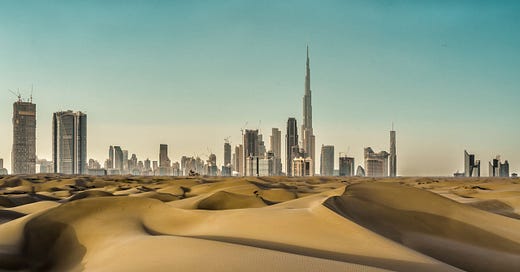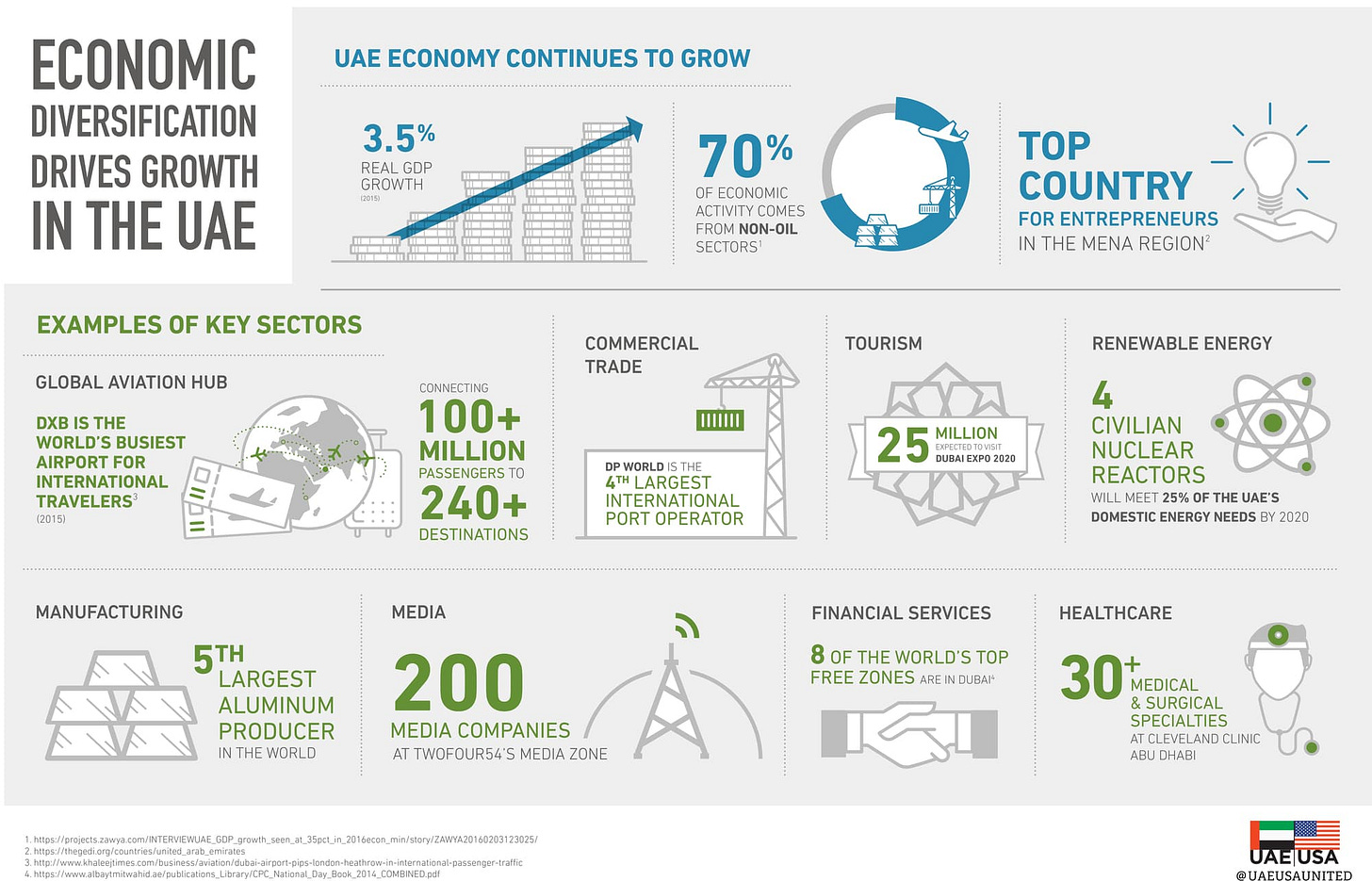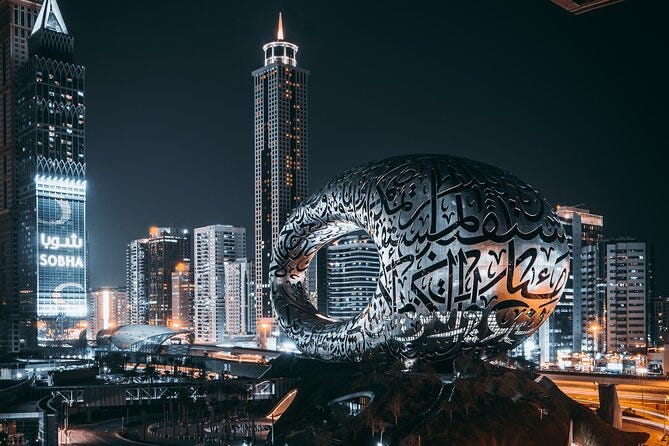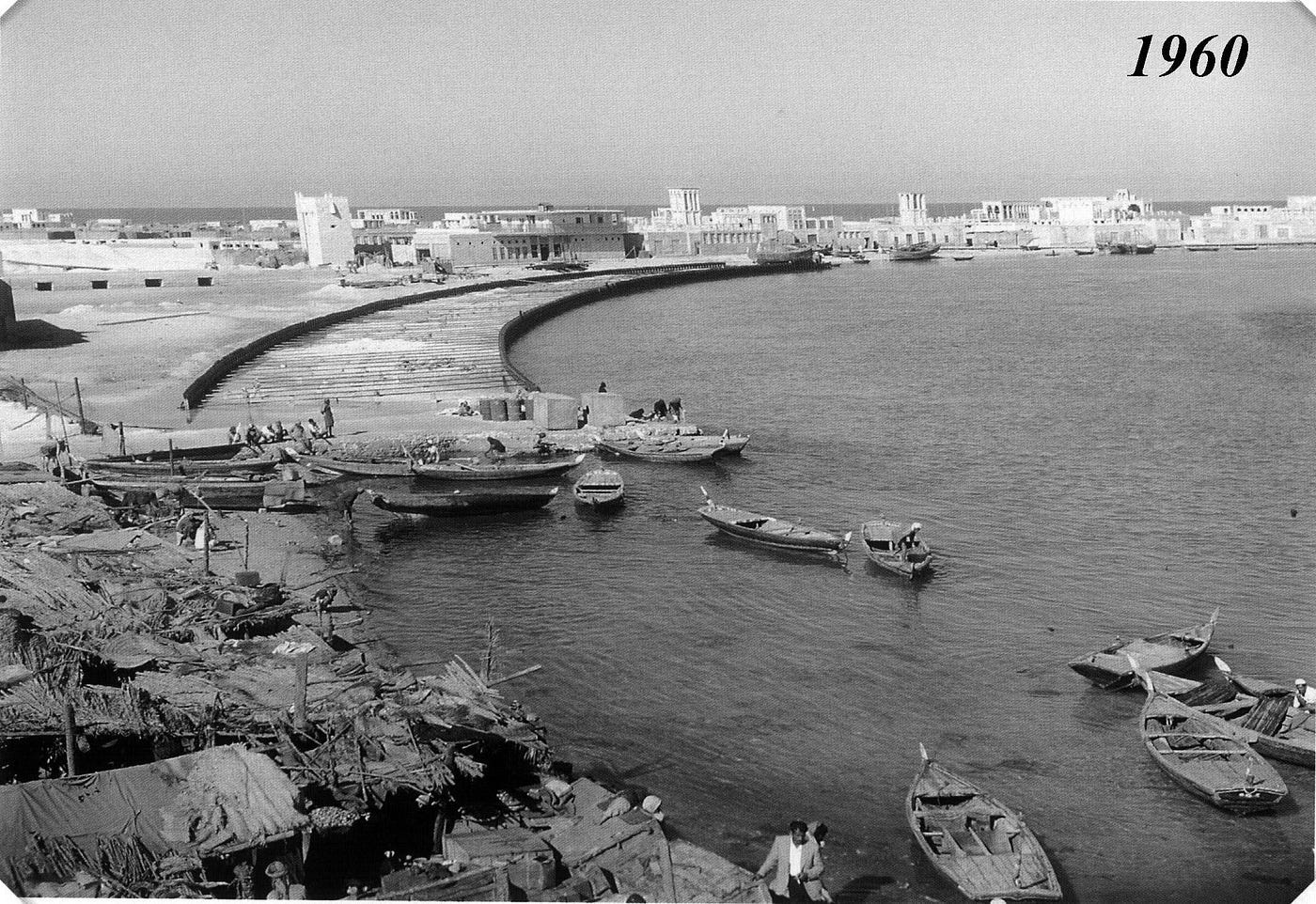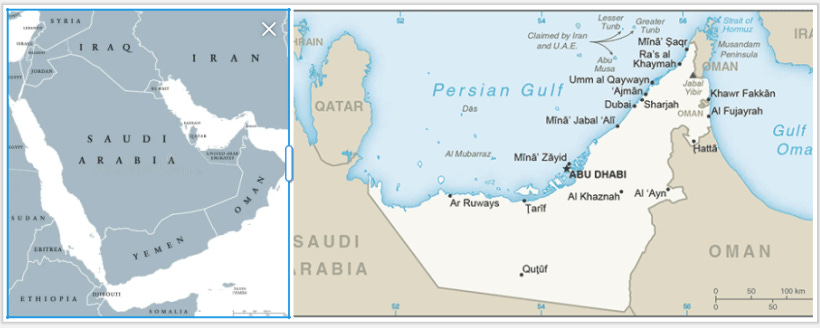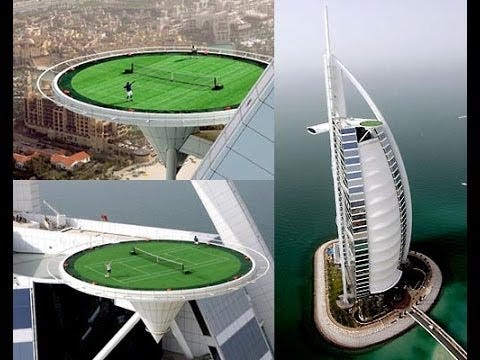The United Arab Emirates: Two Cities and a Rising Power
From Desert Settlements to a Global Powerhouse
When it was created in 1971, most people would not have considered the United Arab Emirates a significant international player. It was a lightly populated desert region with oil reserves divided among multiple sheikdoms. With little intranational infrastructure, hereditary lines of succession, and a volatile location, the UAE seemed destined to be a small, prosperous but weak nation. Dependent on others for protection and influence.
Instead, the UAE is a dynamic country that is making an independent path for itself and its people.
The Creation of the United Arab Emirates
The United Arab Emirates (UAE) is a relatively young nation, okay, not that young, but still younger than me. It was established in December 1971. The UAE is a federation of seven emirates: Abu Dhabi, Dubai, Sharjah, Ajman, Fujairah, Ras Al Khaimah, and Umm Al Quwain. Before its establishment, these emirates were known as the Trucial States, a collection of sheikhdoms that had signed maritime truces with Britain in the 1800s, which made them essentially a British protectorate.
Great Britain ended that relationship in 1971 to shrink their stretched resources. Rather than go their separate ways, the two most powerful rulers, Sheikh Zayed bin Sultan Al Nahyan of Abu Dhabi and Sheikh Rashid bin Saeed Al Maktoum of Dubai, led the sheikdoms in the federation's formation. Through diplomatic negotiations, they convinced the rulers of the other emirates to join the union, thus laying the foundation for a nation. Threats and actions by Iran (then ruled by the Shah) helped push the other Sheikhs to take joint action.
Looking to the future, the UAE signed military cooperation pacts with the US (1994) and France (1995). The country first came to prominence (from the US viewpoint) by allowing the use of its Al Dhafra Air Base during operations in the First Gulf War. Since that time, the UAE has supported the US military coalition in the wars against the Taliban in Afghanistan, Saddam Hussein in Iraq, and the war on terror. How did it get there?
Economic Strength of the UAE
The UAE boasts one of the fastest-growing economies in the Middle East. Initially fueled by oil revenues, the nation's economy has diversified significantly over the past few decades. The UAE has avoided the resource trap that has locked other nations into a single resource exporter whose government is focused on internal divisions and power struggles. Instead, Abu Dhabi's oil wealth has provided a solid foundation for the country's prosperity, enabling substantial investments in infrastructure and development projects. However, recognizing the finite nature of oil resources, the UAE has strategically shifted towards a more diversified economic model.
The sheikdom of Dubai has led in diversification, establishing itself as a global hub for finance, trade, tourism, and real estate. The emirate's ports, such as Jebel Ali and its world-renowned airline Emirates, have positioned it as a key player in global logistics and transportation. Furthermore, the UAE has emerged as a leader in renewable energy, spearheading projects like the Mohammed bin Rashid Al Maktoum Solar Park, one of the world's largest solar endeavors. UAE works to bring talented individuals to the country.
The nation's commitment to innovation and technology is evident in initiatives such as the Dubai Future Foundation and the establishment of free zones that attract international businesses and startups. The UAE's Vision 2021 plan aims to further diversify the economy, enhance education and healthcare, and promote sustainability.
Dubai vs. Abu Dhabi
While both Dubai and Abu Dhabi are integral parts of the UAE, they have distinct histories, cultures, and economic strengths. Abu Dhabi, the largest emirate by area and the capital of the UAE, is rich in oil reserves. It has been the financial backbone of the federation, with its vast wealth largely stemming from the oil and gas sector. The city's development was accelerated under the leadership of Sheikh Zayed, who invested significantly in infrastructure, healthcare, education, and cultural institutions.
In contrast, Dubai, with fewer oil reserves, has taken a different path to prosperity and global visibility. Dubai has focused on diversifying its economy. The emirate invested heavily in trade, tourism, aviation, and real estate. Iconic projects such as the Burj Khalifa, the Palm Jumeirah, and the Dubai Mall have cemented Dubai's reputation as a global city. The emirate's strategic location and world-class infrastructure have positioned it as a central hub for international business and tourism.
Despite their differences, Abu Dhabi and Dubai have worked collaboratively to ensure the UAE's overall development, each contributing their strengths to the federation's success. The two emirates share 2/3 of the population, and they split the titles of Prime Minister and President between them.
The strength of the UAE’s reach can be quantified. The United Arab Emirates now ranks 10th among nations in the category of Soft Power.
The UAE's Geographical Importance
The UAE is located at the mouth of the Persian Gulf, adjacent to the strategic Strait of Hormuz. About 25% of the world’s oil passes through this Strait annually, with 80% bound for Asia. About a third of the world’s liquefied natural gas supply also traverses this area. The UAE has built relationships with major powers, particularly the United States and China, which help to back up the UAE’s defense.
UAE hosts military facilities for both French and US forces. Its strategic location in the Middle East, and directly across the Persian Gulf from Iran, creates a valuable forward base for both nations.
The UAE's International Relations
The UAE's influence extends far beyond its borders, reflecting its ambitions as a regional and global player. Diplomatically, the UAE maintains strong relations with major world powers, including the United States, China, and the European Union. It is a member of the United Nations, the Arab League, the Gulf Cooperation Council, and the Organization of Islamic Cooperation. Most recently, the UAE has joined the BRICS bloc of nations to increase its economic output and international voice.
In recent years, the UAE has taken a proactive role in regional politics and humanitarian efforts. It has been involved in peacekeeping missions, provided aid to conflict zones, and supported development projects in developing countries. The UAE's commitment to humanitarian causes is evident in its substantial financial contributions to global health, education, and disaster relief initiatives. However, these positives stand in contrast to some of its internal policies.
For example, the UAE is notorious for its treatment of migrant workers. Due to the Kafala system, employers have great control over workers' lives. This system restricts job mobility, allows employers to confiscate passports, and can lead to exploitation and abuse, including non-payment of wages and poor working conditions. Human rights groups have documented widespread labor abuses, including wage theft, forced labor, and the risk of heat-related illnesses.
Militarily
The UAE has also started taking proactive military actions to support its allies in the region. It has built or shared the use of military bases in Yemen, Eritrea, Somaliland, Puntland, Somalia, Chad, Libya, and Egypt since the mid-2010s. Most of these actions are undertaken to support the flow of commerce in the Red Sea and Horn of Africa regions. These actions are not always welcomed or successful. For example, the intervention in the Yemeni Civil War was a slow-moving disaster where the UAE’s participation was widely denounced.
One of the UAE’s most notable international actions1 was signing the Abraham Accords in 2020. This agreement normalized relations between the UAE and Israel, paving the way for economic, cultural, and technological collaborations between the two nations. The accords were seen as a significant step towards peace and stability in the Middle East as seen from America. Their relationship has been extremely strained by the Gaza War, but it has not been cancelled.
Culture
In the realm of culture and sports, the UAE has hosted numerous international events, including the Dubai World Cup, the Formula 1 Abu Dhabi Grand Prix, and Expo 2020. These events have showcased the nation's capabilities and promoted cultural exchange and tourism.
The UAE's Future
The UAE's journey from a collection of desert sheikhdoms to an international power is due to visionary leadership, strategic planning, and a commitment to innovation and development. The UAE’s social actions have mainly been benevolent, but its military adventures have been less so. Continuation of the current policies should guarantee a bright future for the nation.
However, international conflicts may affect the maintenance of a balanced foreign policy and the support of citizens. For example, many UAE citizens have been critical of Israeli relations since the Gaza War. Stepping onto the world stage carries risks. Any international conflict in the Persian Gulf region would threaten the UAE’s continued relevance.
The other potential problem for the UAE’s continued importance worldwide is inevitable leadership changes within the UAE. As noted, the leaders of Abu Dhabi and Dubai control the UAE’s government. The UAE can be described as a benevolent autocracy. Policies might swiftly change as a new generation of leaders replaces the current Sheiks of these two anchor emirates.
“Important” from America’s Viewpoint

